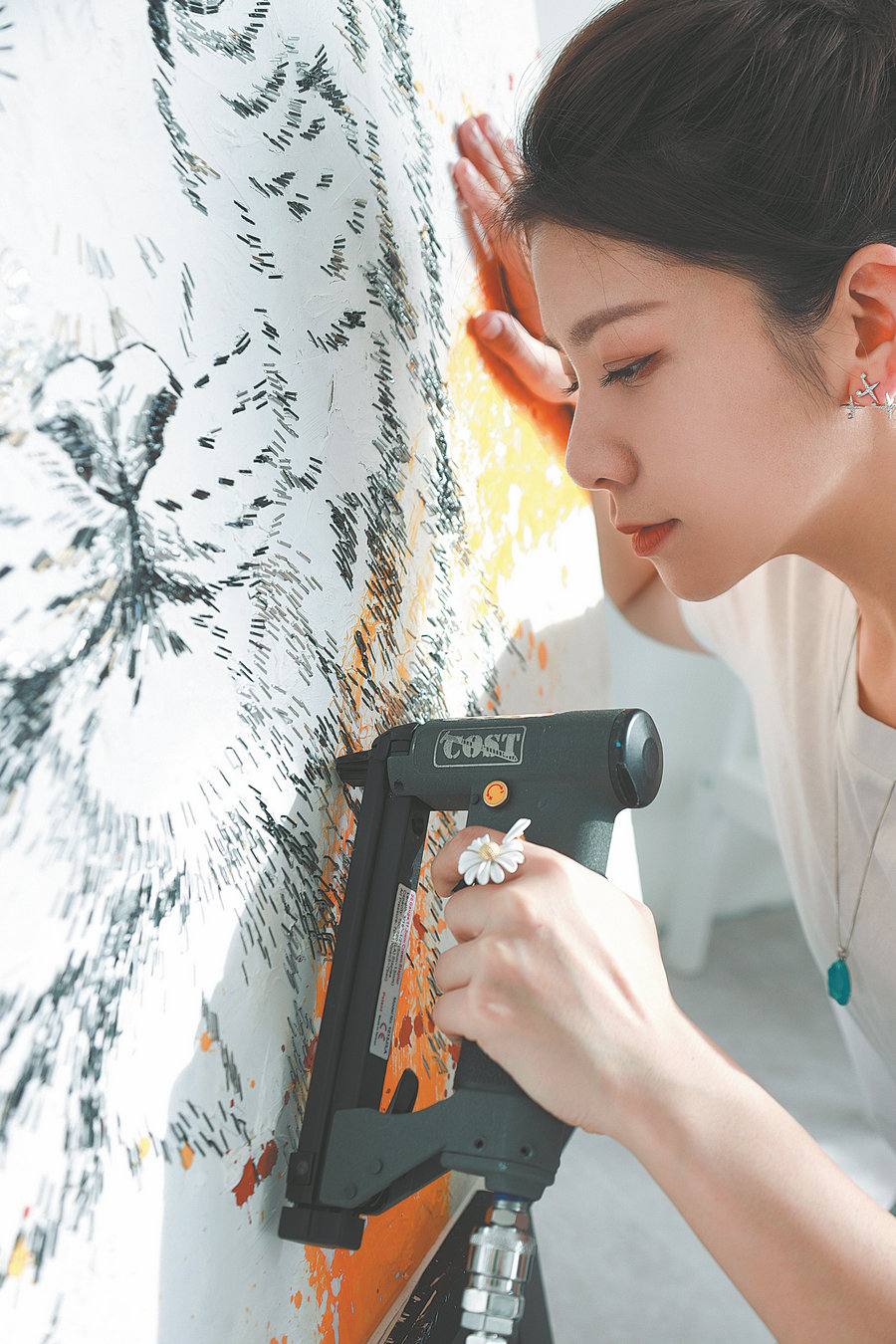An artistic staple


A Beijing resident uses an unlikely tool to create fabulous feline art, Yang Feiyue reports.
Qing Chuan has shown her love for cats through art, but in a unique way. The Beijing resident used an industrial staple gun to create 13 artworks of felines that are on the National Forestry and Grassland Administration's list of "key protected wildlife". It took her over eight months to make them.
"People generally know that pneumatic staple guns are used for building renovation and other engineering purposes, but they wouldn't think of using it to 'paint,'" Qing says.
"I hope to combine the power of industry and the beauty of nature, and to incorporate more of my own ideas in the expression of it, to create an impactful visual effect," she says.
Her works feature sharp feline profiles without much of a background. In her works, each feline has a unique pattern and facial structure, a result of Qing's own research and communication with experts.
Her "art tool" itself posed a challenge at first. A staple gun usually needs to be connected to a long tube of compressed air that weighs a lot.
"I had to lift it with both hands," she says, adding that she was practically trembling after a day's work.
Yet, after a while, Qing could hold the tool with one hand. "I felt a sense of achievement when I saw the muscles in my arm were kind of sculpted."
The 13 art panels are of various sizes and made of high-density PVC board, which she settled on after repeated experiments.
"I went to the building materials market a lot to seek options," Qing says.
At first, she used wood, but found it too changeable under humid conditions.
"A PVC board also makes less noise during stapling, and is moisture-proof and not easily deformed," she says.
The weight of these two types of boards is similar, about 15 kilograms. The underlying texture of her work is made of such materials as newspaper, quartz sand, shaping paste and wall paint. "Each art piece uses a different number of staples."
The North China leopard, for instance, has dense and complex patterns, which naturally required more staples, about 50,000, for its expression, she explains.
Smaller art panels required more than 20,000 staples.
"I need to use a hammer to adjust the degree of height of the staples to bring out the animal's features properly," Qing says.
Moreover, as the staples are mostly in monotonous black and silver, it required more physical effort and thinking on her part.
"The neat linear arrangement of the staples can express the changes of growth, direction and density of the animal's hair, and present the stripes and spots well," Qing adds.
























